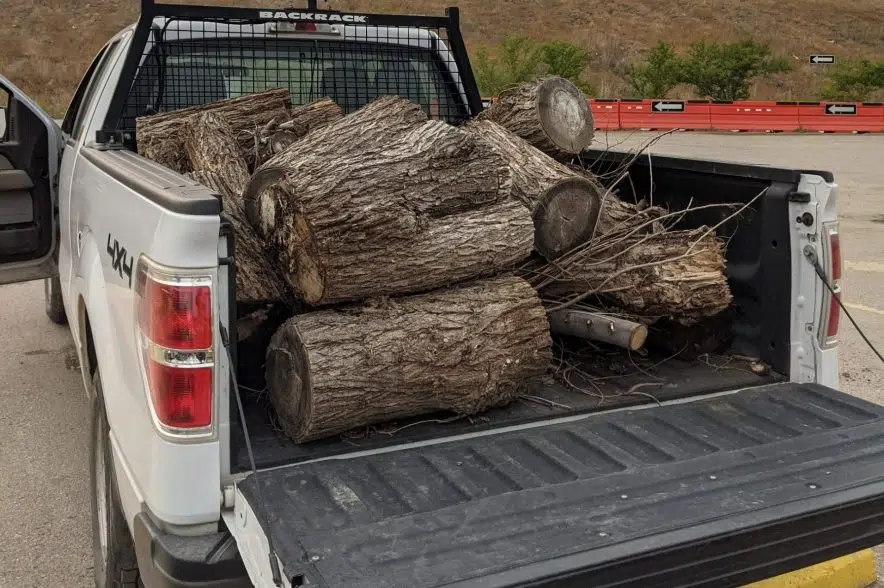A new initiative from the City of Saskatoon kicks off next month in an effort to reduce Dutch elm disease, a serious fungal disease that kills elm trees.
According to the city, elms make up 25 per cent of the public urban forest.
From next Sunday to Oct. 31, the city will run a pilot program for Saskatoon residents to dispose of their elm wood at the city landfill free of charge.
“By doing this pilot program, we’re hoping we can get the word out about properly disposing (of) that elm at the landfill in order to protect our elm trees,” said Sydney Worthy, an entomologist with the City of Saskatoon.
Worthy noted the cost of disposal at the landfill can be a barrier, and the program was created to improve the public’s knowledge of proper elm wood disposal, and gauge the accessibility of it.
The program will waive the regular entry fee of $15 at the landfill, and the general disposal fees that come with elm wood waste. Worthy noted the free disposal is just for elm, and does not apply to mixed loads of wood.
Worthy said there isn’t a limitation on how much elm wood can be brought in by residents, and the program does not apply to companies.
In the last three years, between 4,000 and 6,000 loads have been brought to the city. Over those three years, the revenue generated from the wood brought in was about $300,000, Worthy explained, noting the city is covering the costs for the pilot project.
Worthy also said in the last few years the city has assessed the public’s awareness of the issue, and how well the elm wood is being properly disposed of.
From a survey in 2019, the entomologist said a “good per cent”of people were not properly disposing elm wood. Members of the public were trying to compost it, placing it in black carts, or storing it as firewood.
Worthy said the most likely reason behind the Dutch elm disease cases in the city is due to firewood in surrounding areas.
In August, the city confirmed cases of Dutch elm disease on Central Avenue in the Forest Grove area, which resulted in the removal of the trees that tested positive and an entire shelter belt of trees.
“Dutch elm disease can be spread through the root system of trees when they’re close together ” she explained.
Worthy said the City of Saskatoon website has resources for identifying elm wood.
The landfill’s summer hours of 7:30 a.m. to 5:30 p.m. will be in effect until Oct. 9. Winter hours of 7:30 a.m. to 5 p.m. begin Oct. 10.
— With files from 650 CKOM’s Brent Bosker








